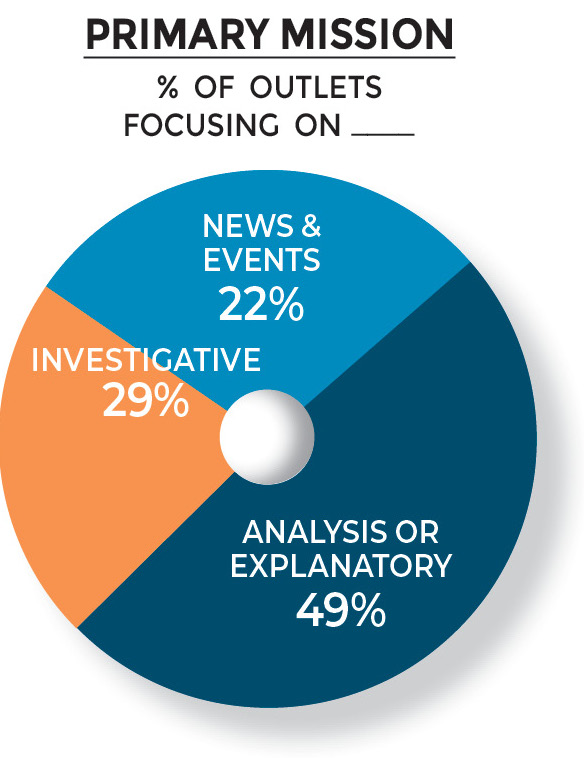
By Michele McLellan, Jesse Holcomb and Emily Roseman
Sept. 28, 2021
Definition: National organizations focus on public affairs issues that affect the entire country, whereas global organizations generally take aim at broad world topics or they produce news of distant places. There are 70 of these organizations in the study, including 47 national and 23 global in scope. Together they made up just under a third of the field in 2020.
TLDR: National and global organizations make up the most established and prominent group in nonprofit news. Their revenue, reach and impact dwarf the rest of the field.
Growth: National and global organizations dominated the early development of the nonprofit news field. More than half of national and global outlets publishing today already existed ten years ago. In the past decade, a slower pace of new launches has not blunted the significant impact of these organizations, which routinely appear among finalists or winners of major U.S. journalism awards.
Mission: Many nationally or globally focused outlets produce in depth explanatory reporting. Many cover a single topic such as the environment, education, criminal justice or religion. They account for more than half of all single-topic outlets. Others cover several related topics, such as news about or for indigenous peoples, youth, veterans or military families.

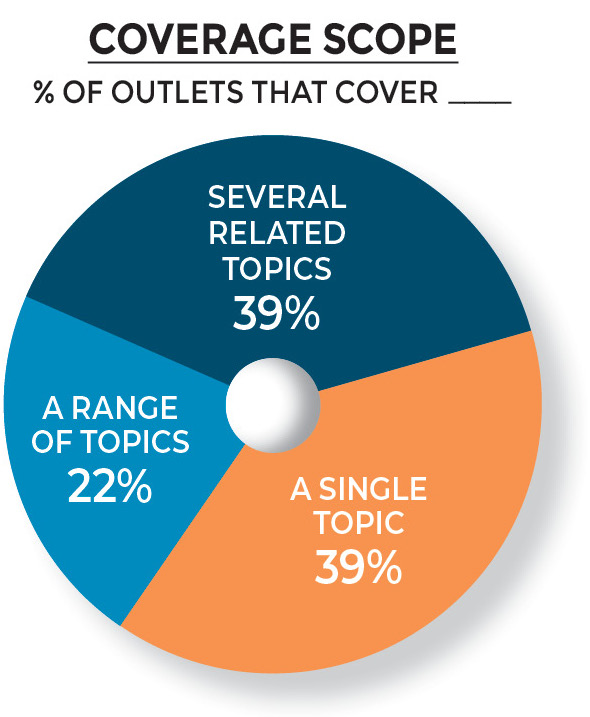
Total revenue: As might be expected, national outlets operate on larger budgets than the rest of the field. Well over half generate annual revenue of $1 million or more. Median revenue in 2020 was $1.8 million for national organizations and $446,000 for global organizations. While these organizations represent less than one-third of the field, they generate 60% of the field’s total revenue.
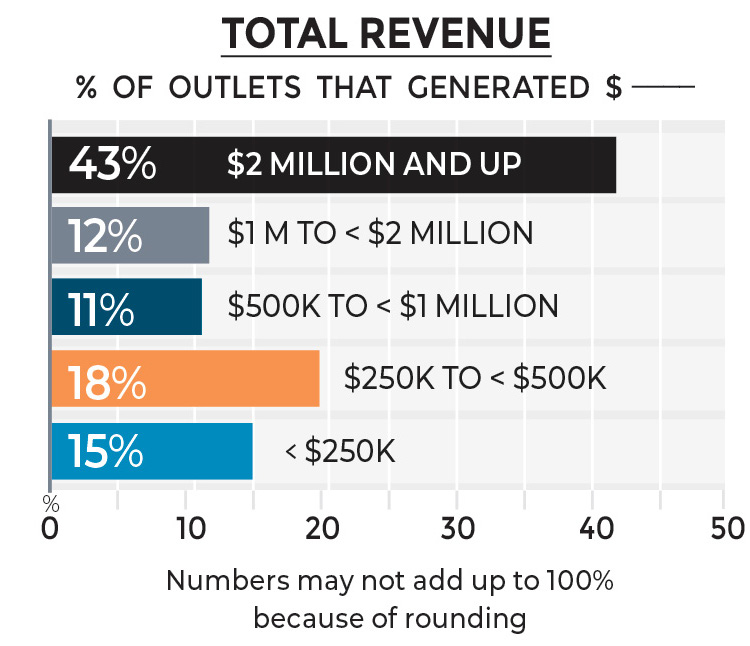
Revenue gains: Twenty-three national and global outlets participated in both the first INN Index survey, covering 2017 operations, and the latest survey, covering 2020. More than half reported revenue gains during that time.
Revenue mix: With high visibility and prominent impact on a national or global scale, these organizations benefit from stronger foundation and major donor support than the rest of the field. Seventy percent of the individual giving dollars they receive comes from major donors. Earned revenue, such as sponsorships and events, does not figure prominently in the national/global nonprofit portfolio. It accounts for less than 10% of revenue for these outlets. Fewer than half reported earned revenue from any source.
Revenue outlook: Together, national and global organizations command the lion’s share of revenue in the nonprofit field. Given their high profile and demonstrated impact, charitable support for these organizations is likely to remain strong.
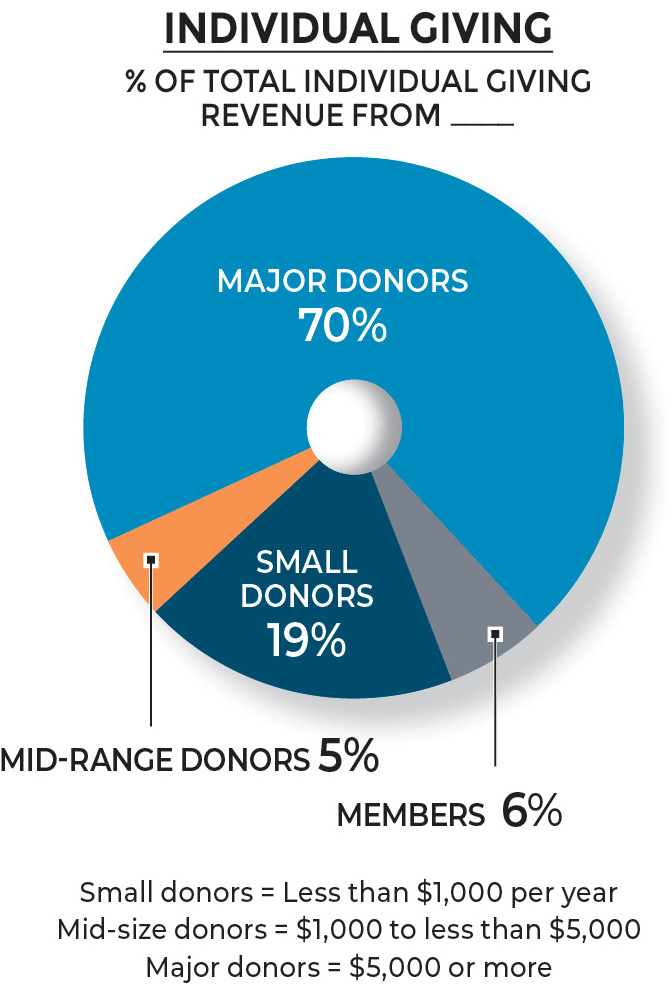
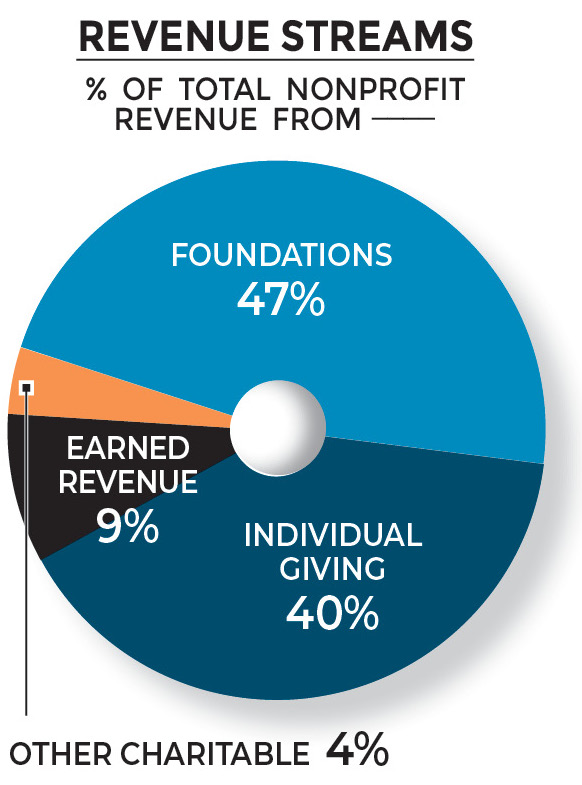
One-third of their total personnel and one-fourth of their executives are people of color, about average for the field.
The median personnel (including staff and significant contractors) of these organizations is 12 full-time equivalents (FTEs), more than double the rest of the field.
The range is 1 to 148 FTEs. National organizations have a median of 13 FTEs and global organizations have 10.
While national and global organizations reach a lower share of their audience by direct distribution, rather than through third-party distribution partnerships or syndication, they excel at direct newsletter and web reach.
